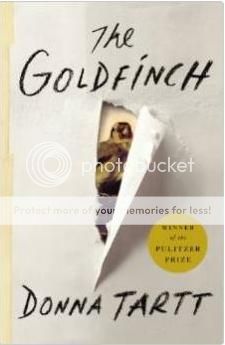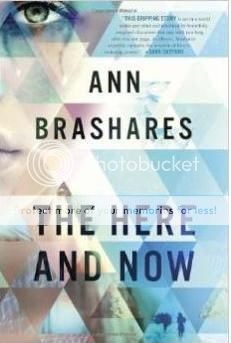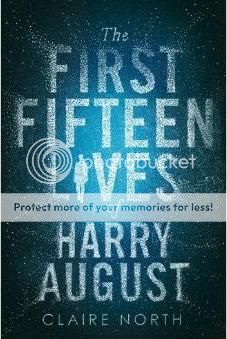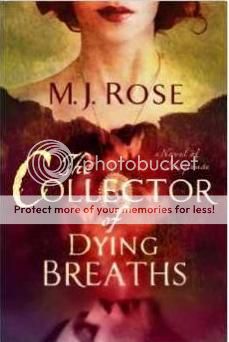
The Goldfinch, by Donna Tart is probably one of the best novels ever written. It is what is termed in the industry a Literary Novel like "A Tale of Two Cities" by Charles Dickens or "War and Peace" by Leo Tolstoy. Other literary novels abound, and many of them have won The Pulitzer Prize. In fact, for many a novelist, this is a dream or maybe call it a desire: to win the Pulitzer Prize in fiction. Just like an actor covets an Emmy or an Oscar.
There are other awards of course, as each sub-genre in fiction has its own award, Mystery has its "Edgar Award"; Science Fiction has its Hugo and Nebula; and so-on. There is also the Man - Booker Prize and some other fiction awards, but it seems that the Pulitzer has always had the highest luster, has always been the most coveted award.
Last spring, I remember watching a "60 Minutes" report on "The Goldfinch" centered around readers of the book who were visiting the Hague to look at the original painting. I thought to myself then, how could a book, so influence a person to do such a thing. Is this book really that good?
There are many reviews of this book, and mine will be one more in that torrent. Will it sway your opinion one way or the other? Will it make you absolutely hate the book? Will it make you absolutely love the book? There are those who believe that the book was not and will not be a long term commercial success, will not, in other words have staying power, despite the fact that it has already been optioned to become a movie (something I am already disturbed about). There are those, like this writer, who have a lot to say about this book. I am not going to comment on the Vanity Fair article, or try to copy or plagiarize any of the other reviews that are out there. Instead, I will give you this novice's review of "The Goldfinch" (mine).
It took me a long time to read this book, because it is a big book, almost 800 pages long. Oh, I've read big books before, but not like this. This book is best consumed in small bites, with a clear head. It's not a difficult book, the words in it are not complex and do not require a PhD in English Literature, but the content behind each sentence and the power of each word is such that the whole is greater than the individual word. Please don't misunderstand me. This, is not a pretentious book. This is, a really good book for everyone, except children of course. I do see a future where professors will be teaching this, just as "A Tale of Two Cities" has been taught, just as "War and Peace" has been taught.
The book is about 13-year old Theo Decker and his journey to adulthood. But this ─ this is the only plot point you need to know before you need to open it. Because Theo Decker can be anyone. Theo Decker could be me. Theo Decker could be you. Theo Decker could be your best friend from high school. And that journey will make sense to you, you will understand it. In that journey (or in parts of it) you will recognize yourself, you will recognize others you might have been around, you will recognize situations, and characterizations you would be familiar with. Theo, therefore is in archetype born from inside all of us. Is he a hero? Is he a villain? Is he redeemed at the end?
I can't tell you that! You must read the book to find out.
For me at least, this book worked. It worked, because it was a great coming of age story and because Donna Tart, somehow understood everything at the center of Theo Decker and was able to make everyone in his orbit work. Whether you believe she achieved this to make this a "Great Novel" that's for you to decide.
As to whether, I think this is a great novel, up there with the classics of literature... I have these last few thoughts: As I was going along, walking with Theo in Amsterdam, late in the Novel, questioning the trajectory of his life, I understood what Donna Tart was saying. I understood completely her message, the revelation that Theo had reached and the message she was trying to impart to her audience; us the readers. The problem is, I don't know how many people will get(got) that message. Not because it is in some code. Not because it's like "The Bible Code" and a higher power must impart it, or finally because it is hidden in the text somewhere. The problem for me arose when Theo Decker either in monologue or in dialogue with other main characters imparts that message to the readers near the end of the book:
─four hundred years before us, four hundred years after we're gone ─ it'll never strike anybody the same way at all but ─ a really great painting is fluid enough to to work its way into the mind and heart through all kinds of different angles, in ways that are unique and very particular. Yours, yours, I was painted for you.
(ed: Obviously, so can a great piece of literature.... hint, hint.)
And:
'Why be good.' But ─ this is what took hold on me last night , riding here in the car. What if ─ is more complicated than that? What if maybe opposite is true as well? Because, if bad can sometimes come from good actions ─ ? where does it ever say, anywhere, that only bad can come from bad actions? Maybe sometimes ─ the wrong way is the right way? You can take the wrong path and it still comes out where you want to be? Or, spin it another way? sometimes you can do everything wrong and it still turns out to be right?
Also:
Only here's what I really, really want someone to explain to me. What if one happens to be possessed of a heart that can't be trusted ─ ? What if the heart, for its own unfathomable reasons, leads one willfully and in a cloud of unspeakable radiance away from health, domesticity, civic responsibility and strong social connections and the blandly-held common virtues and instead straight towards a beautiful flare of ruin, self-immolation, disaster?
4½ out of 5 stars.






